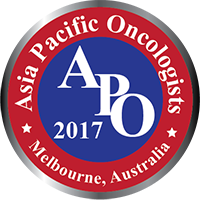
Bo Yuan
Tokyo University of Pharmacy & Life Sciences, Japan
Title: Enhanced cytotoxic effects of the combination of arsenite with tetrandrine against breast cancer cell line MCF-7
Biography
Biography: Bo Yuan
Abstract
To provide novel insight into the development of new therapeutic strategies to combat breast cancer using trivalent arsenic (AsIII)-based combination therapy, the cytotoxicity of a combination of AsIII and tetrandrine (Tetra), a Chinese plant-derived alkaloid, was investigated in the human breast cancer cell line MCF-7. Cytotoxicity was evaluated using cell viability, colony formation, wound healing, lactate dehydrogenase leakage and cell cycle assay. Alterations of genes associated with cell proliferation and death were analyzed using real-time PCR and western blot. Intracellular arsenic accumulation (As[I]) was also determined. Tetra significantly enhanced the cytotoxicity of AsIII against MCF-7 cells in a synergistic manner. The combined treatment upregulated the expression level of FOXO3a, and subsequently resulted in a concomitant increase in the expression levels of p21, p27 and decrease of cyclin D1, which occurred in parallel with G0/G1 phase arrest. Autophagy induction was also observed in the combination treatment. Importantly, combining AsIII with Tetra exhibited a synergistic inhibitory effect on the expression level of survivin. Furthermore, enhanced As[I] along with synergistic cytotoxicity was observed in MCF-7 cells treated with AsIII combined with Tetra or Ko134, an inhibitor of breast cancer resistance protein (BCRP), suggesting that Tetra or the BCRP inhibitor probably intervened in the occurrence of resistance to arsenic therapy by enhancing the As[I] via modulation of multidrug efflux transporters. These results may provide a rational molecular basis for the combination regimen of AsIII plus Tetra, facilitating the development of AsIII-based anticancer strategies and combination therapies for patients with solid tumors, especially breast cancer.

